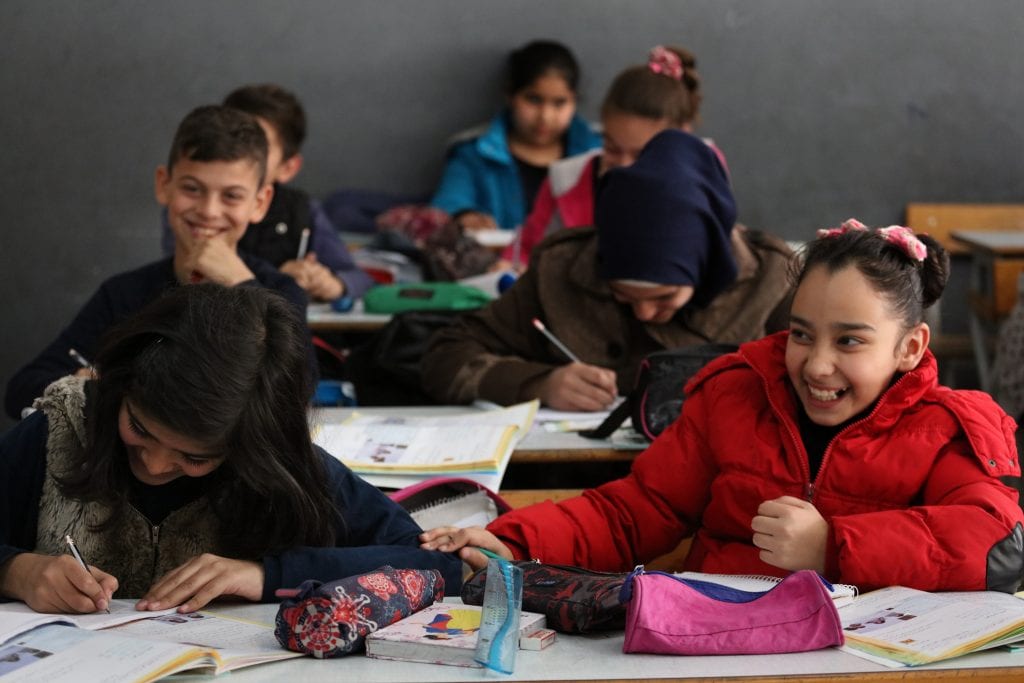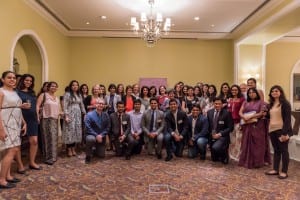Moving from ‘burden sharing’ to inclusive prosperity: A RELIEF workshop
By By Guest Blogger, on 16 August 2017
By Hannah Sender, Projects, Planning and Advocacy Manager, UCL Institute for Global Prosperity
 In April 2017, UCL’s Institute for Global Prosperity (IGP) in collaboration with the Issam Fares Institute for Public Policy and International Affairs at the American University of Beirut (AUB) hosted a one-day workshop in Beirut, supported by UCL’s Global Engagement Fund. The workshop explored the demands placed on Lebanon since 2011 with the arrival of over one million refugees from Syria, and potential areas of work for those wishing to enhance inclusive prosperity for hosts and refugees in Lebanon.
In April 2017, UCL’s Institute for Global Prosperity (IGP) in collaboration with the Issam Fares Institute for Public Policy and International Affairs at the American University of Beirut (AUB) hosted a one-day workshop in Beirut, supported by UCL’s Global Engagement Fund. The workshop explored the demands placed on Lebanon since 2011 with the arrival of over one million refugees from Syria, and potential areas of work for those wishing to enhance inclusive prosperity for hosts and refugees in Lebanon.
This workshop was the first to be organised as part of RELIEF (Refugees, education, learning, information technology and entrepreneurship for the future): an interdisciplinary centre led by Professor Henrietta Moore (IGP Director) and funded by the UK ESRC’s Global Challenges Research Fund.
The RELIEF Centre is a five-year initiative of UCL, the AUB and the Centre for Lebanese Studies at the Lebanese American University (LAU). UCL’s Development Planning Unit, the Department for Civil, Environmental & Geomatic Engineering, the Institute of Education, Centre for Advanced Spatial Analysis and the Institute for Security and Resilience Studies are all partners.
The recent workshop brought together participants from INGOs, local NGOs, universities in Lebanon and the UK and social activists. Drawing on professional and personal experience, these participants gave rich and varied insights into some of the key ideas of RELIEF, and into the changing relationship between refugees and hosts in Lebanon.
Hospitality in Lebanon
The first session of the workshop, opened by Dr Nikolay Mintchev (IGP), invited participants to problematize and discuss the cultures of hospitality in Lebanon, as they related to Syrian refugees. Lebanon’s hospitality is often referenced by INGOs and foreign governments: in the same breath, they celebrate Lebanon’s hospitality, and announce that it is now over-stretched to the point where conflict is likely. The question they then pose is: how can we enable Lebanon to continue to be a good host to refugees?
The term ‘hospitality’, however, proved to not only have multiple meanings for the participants, but also to be a seriously limited and problematic term. As one participant remarked, it may be depoliticising what is a deeply political issue, and neutralising the real burden placed on Lebanese communities and Lebanese resources.
One observation did unite the participants: since 2013, interactions between hosts and refugees have changed for the worse. Some participants suggested that as time has gone on, people’s perceptions of the possibility of Syrian refugees returning to Syria have changed. This has engendered a fear that Syrians will continue to put pressure on scarce resources, and become competitors for work, housing and education.
Inclusive growth
The RELIEF Centre proposes that inclusive growth – in the broadest sense of the term – is a necessary and good ambition for places severely affected by mass displacement. However, as Dr Nasser Yassin (AUB) put it, inclusive growth is a notion which challenges 27 years of development in Lebanon. It makes demands on governments to consider what kind of growth is desirable, and how it impacts people differently. Too often, these considerations are overlooked in favour of one kind of growth – economic growth – without much concern for how it impacts people differently.
A further discussion arose on how transformative change can occur on the level of the community and individual. Many participants spoke from their own experiences of working with local governments, which had created their own strategies for managing limited resources. Researchers need to consider the value of politics and economic strategy at the local scale, and see whether there is room for manoeuvre at this scale, as well as at the national level.
Education as a practical intervention
Moving on to the afternoon session, the participants were invited to turn their minds to another important component of the RELIEF project: education for communities affected by mass displacement and conflict.
Professor Maha Shuayb (Centre for Lebanese Studies) gave a presentation about the state of education for refugees and host communities in Lebanon. She prompted important questions about identity and difference, and how these imposed categories have created unnecessary divides in delivery of education between refugee and host communities. She suggested that the notion of vulnerability is relevant to both Lebanese and non-Lebanese children, and that educational programmes need to confront and properly function in student groups with a diversity of needs and capabilities.
Pathways to practice
Whilst critical analysis of the challenges which host communities and refugees face in Lebanon is vital to understanding the context in which we are working, the RELIEF team wanted to end the workshop with an insight into spaces of potential action: new policies, engaged institutions, and cultural shifts which could serve as a platform for innovation.
In the final session, the workshop participants were joined by Marina Aksakalova and her team from UNHCR (the UN Refugee Agency). The Lebanese Prime Minister, Saad Hariri, she reported, had given renewed support for a cohesive response to the refugee crisis. It is now possible to develop a strategy and take a more entrepreneurial approach towards it.
The question of inclusivity – who is included and in what – dominated the debate throughout the workshop. The acute needs of people in Lebanon – from host communities to refugees – have created a tense situation in the country, where claims of difference have been deployed to ensure and, conversely, prevent, access to resources. In the final session, there was a hope raised, shared by the partners in the RELIEF Centre: that responses to individual crises can be integrated with the provision of goods and services that are required to live a good life in Lebanon.
Image © Dominic Chavez/World Bank: Students at the Second Bourj Hammoud Pubic School in Beirut, Lebanon. Two-thirds of the students at the school are Lebanese and one-third are Syrian.
 Close
Close



